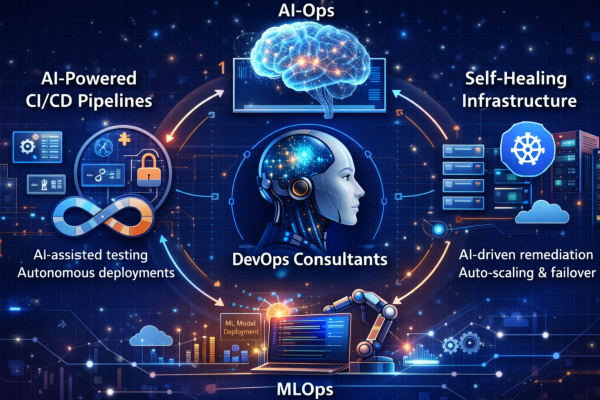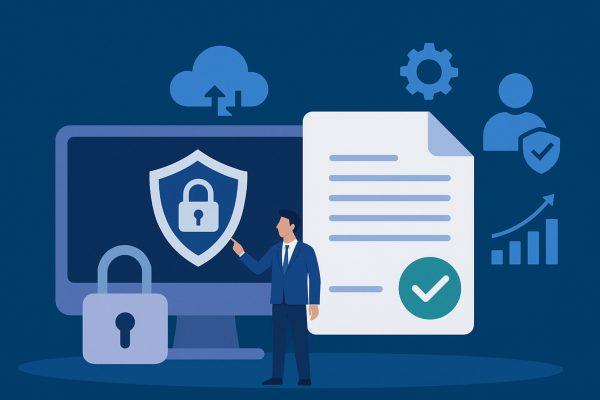How Best Compliance Management Services Assist in Maintaining GDPR Compliance Long-Term
Maintaining GDPR compliance is a continuous process, not a one-time task. For businesses handling personal data, adherence to the General Data Protection Regulation (GDPR) is critical to avoid penalties and protect customer trust. Compliance Management Services in Mohali play a pivotal role in ensuring organizations meet GDPR requirements and sustain compliance in the long run. This blog delves into how compliance services assist in achieving and maintaining GDPR compliance effectively.
Understanding GDPR and Its Importance
GDPR is a regulation enacted by the European Union (EU) to protect the privacy and data rights of individuals. It applies to organizations within and outside the EU that process the personal data of EU citizens. Key principles of GDPR include:
- Lawfulness, fairness, and transparency
- Data minimization
- Accuracy
- Storage limitation
- Integrity and confidentiality
- Accountability
Failure to comply can result in hefty fines, reputational damage, and loss of customer trust. This is where compliance management services come into play.
The Role of Compliance Services in GDPR Maintenance
1. Comprehensive Gap Analysis
Compliance management services conduct a thorough gap analysis to identify areas where the organization falls short of GDPR requirements. This analysis provides a clear roadmap for implementing necessary changes.
2. Data Mapping and Inventory
Understanding what data an organization collects, processes, and stores is vital. Compliance services assist in creating a detailed data inventory and mapping data flows. This ensures:
Identification of personal data processed
Understanding how data is shared within and outside the organization
Proper documentation of data processing activities
3. Policy and Procedure Development
Maintaining GDPR compliance requires robust policies and procedures. Compliance management services help develop and update:
Privacy policies
Data protection impact assessments (DPIAs)
Breach notification protocols
Data retention policies
4. Training and Awareness Programs
Educating employees about GDPR requirements is crucial for maintaining compliance. Compliance services offer tailored training programs to:
Build awareness of data protection practices
Reduce risks of human error
Ensure employees understand their roles in maintaining compliance
5. Third-Party Vendor Management
Organizations often share personal data with third-party vendors. Compliance management services evaluate these vendors to ensure they adhere to GDPR requirements. Key aspects include:
Reviewing data processing agreements (DPAs)
Ensuring vendors implement adequate security measures
Monitoring ongoing compliance of third parties
6. Regular Audits and Monitoring
Periodic audits are essential to verify compliance with GDPR standards. Compliance services conduct regular checks to:
Assess adherence to policies and procedures
Identify potential risks or vulnerabilities
Recommend corrective actions
7. Data Subject Rights Management
GDPR grants individuals several rights, including access to their data, correction, deletion, and restriction of processing. Compliance management services help organizations implement processes to handle:
Data subject access requests (DSARs)
Requests for data deletion or rectification
Objections to data processing
8. Incident and Breach Management
In the event of a data breach, compliance services assist in managing the incident effectively. This includes:
Investigating the breach
Notifying the relevant supervisory authority within 72 hours
Communicating with affected individuals if necessary
9. Ensuring Data Security
Robust data security measures are a cornerstone of GDPR compliance. Compliance management services work with organizations to implement:
Encryption and pseudonymization
Access controls and authentication mechanisms
Regular vulnerability assessments and penetration testing
10. Adapting to Regulatory Changes
GDPR compliance is not static; regulations and interpretations can evolve. Compliance services keep organizations updated on changes and help adapt their practices accordingly.
Benefits of Using Compliance Management Services
1. Expertise and Knowledge
Compliance professionals bring extensive knowledge of GDPR and data protection laws. Their expertise ensures:
Accurate interpretation of complex regulations
Tailored solutions for specific business needs
2. Time and Resource Efficiency
Outsourcing compliance tasks allows organizations to focus on core operations while experts handle GDPR requirements. This:
Saves time and effort
Reduces the burden on internal teams
3. Risk Reduction
By proactively identifying and addressing risks, compliance services minimize the likelihood of data breaches and regulatory penalties.
4. Enhanced Customer Trust
Adhering to GDPR demonstrates a commitment to data protection, boosting customer confidence and loyalty.
Practical Steps to Ensure Long-Term GDPR Compliance
1. Commit to a Culture of Privacy
Fostering a privacy-first mindset within the organization ensures employees prioritize data protection in their daily tasks.
2. Regular Policy Reviews
Policies should be reviewed and updated regularly to reflect changes in business operations or regulations.
3. Leverage Technology
Use compliance tools and software to automate tasks such as:
Monitoring data processing activities
Generating compliance reports
Managing DSARs
4. Engage with Compliance Experts
Partnering with compliance management services ensures access to specialized knowledge and ongoing support.
5. Stay Informed on Regulatory Updates
Subscribe to regulatory updates and participate in industry forums to stay informed about GDPR developments.
Conclusion
Achieving and maintaining GDPR compliance requires a proactive and continuous effort. Compliance management services play an indispensable role in helping organizations navigate the complexities of GDPR. From conducting gap analyses and developing policies to managing data subject requests and adapting to regulatory changes, these services provide the expertise and tools necessary for long-term compliance.
Investing in compliance management services not only ensures adherence to GDPR but also builds customer trust, mitigates risks, and safeguards the organization’s reputation. By integrating these services into your operations, you can confidently navigate the evolving landscape of data protection and privacy.
Author







